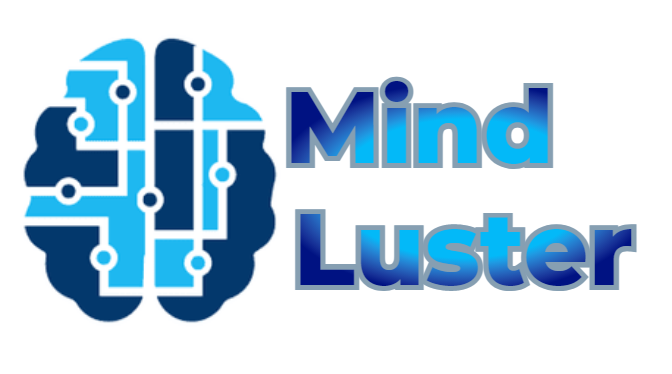Mind Luster Unleashing the Power of Clarity

In the hustle and bustle of modern life, finding mental clarity can seem like a distant dream. However, achieving “Mind Luster” is not only possible but essential for our overall well-being and productivity. In this article, we will explore the concept of Mind Luster and discuss strategies to attain it.
Introduction to Mind Luster
Mind Luster is the state of having a clear and focused mind. It’s a mental state where distractions are minimized, and your cognitive abilities are at their peak. Achieving Mind Luster can lead to enhanced problem-solving skills, improved decision-making, and a greater sense of well-being.
The Significance of Mental Clarity
In the whirlwind of our daily lives, mental clarity stands as a beacon of focus and tranquility. It is a state of mind where the chaos of distractions and cluttered thoughts gives way to a serene clarity, allowing us to see and think with unwavering precision. The significance of mental clarity cannot be overstated, as it profoundly impacts various aspects of our lives.
Enhanced Concentration
Mental clarity empowers us to concentrate on the task at hand. When our minds are clear, we can direct our full attention to a particular activity, project, or problem. This heightened concentration leads to improved productivity and performance.
Effective Information Absorption
A clear mind acts as a sponge for knowledge. It allows us to absorb information more effectively. Whether it’s studying for an exam, reading a book, or learning a new skill, mental clarity ensures that we comprehend and retain information better.
Improved Communication
Clarity of thought translates to clarity in communication. When our minds are free from clutter, we can articulate our ideas and feelings with precision. This, in turn, fosters better understanding and meaningful interactions with others.
Stress Reduction
One of the most significant benefits of mental clarity is stress reduction. A clear mind is less susceptible to the ravages of stress. It allows us to handle challenges and setbacks with composure and resilience.
Decision-Making
In the realm of decision-making, mental clarity shines brightly. When we have a clear mind, we can assess situations and make decisions more efficiently. This leads to better choices and outcomes in both personal and professional spheres.
Creative Flow
Creativity flourishes in the garden of mental clarity. A clear mind is open to inspiration and innovation. It enables us to think outside the box and generate fresh ideas and solutions.
Emotional Balance
Mental clarity also contributes to emotional balance. It helps us manage our emotions with greater control and understanding. This emotional equilibrium is essential for overall well-being.
Reduced Overthinking
A cluttered mind often leads to overthinking, which can be exhausting and counterproductive. Mental clarity frees us from the shackles of overanalysis and allows for more straightforward, effective problem-solving.
Enhanced Productivity
Ultimately, the significance of mental clarity lies in its capacity to enhance productivity. When our minds are clear, we can work with efficiency and purpose, accomplishing tasks more quickly and effectively.
In summary, mental clarity is not a mere luxury; it is a necessity in our fast-paced world. It empowers us to concentrate, communicate, and create with precision. It reduces stress, improves decision-making, and fosters emotional balance. By nurturing mental clarity, we pave the way for a more productive, fulfilling, and balanced life.
Factors Affecting Mental Clarity
Mental clarity is a state of mind that many aspire to achieve, but it can be elusive due to various factors that impact our cognitive abilities. Understanding these factors is crucial in our quest to attain and maintain mental clarity. Here are some key elements that affect mental clarity:
1. Stress
Stress is a significant factor that can cloud our thinking. When we’re under stress, our minds become preoccupied with worries, making it challenging to concentrate and think clearly. Learning to manage and reduce stress is essential for enhancing mental clarity.
2. Lack of Sleep
Quality sleep is vital for cognitive function. Sleep deprivation can lead to a foggy mind, decreased alertness, and poor decision-making. Prioritizing rest and ensuring you get enough sleep is crucial for mental clarity.
3. Poor Nutrition
Diet plays a substantial role in mental clarity. Consuming a diet rich in nutrients, such as omega-3 fatty acids, antioxidants, and essential vitamins, can support cognitive function. On the other hand, an unhealthy diet can contribute to brain fog.
4. Excessive Screen Time
In the digital age, we’re exposed to screens for extended periods. Excessive screen time, especially on electronic devices, can lead to mental fatigue and decreased concentration. Setting boundaries and taking breaks can mitigate this effect.
5. Lack of Physical Activity
A sedentary lifestyle can hinder mental clarity. Regular physical exercise has been shown to improve cognitive function, as it enhances blood flow to the brain and promotes the release of neurotransmitters that support clear thinking.
6. Multitasking
Trying to do too many things at once can overwhelm our brains. Multitasking often leads to decreased efficiency and reduced mental clarity. Focusing on one task at a time can help improve clarity of thought.
7. Information Overload
Living in an information-rich society, we are bombarded with data and stimuli. Constant exposure to information, whether through news, social media, or emails, can overwhelm our minds and make it challenging to concentrate.
8. Environmental Distractions
A noisy or cluttered environment can be disruptive to mental clarity. Reducing environmental distractions, such as noise or clutter, can help create a more conducive setting for clear thinking.
9. Health Conditions
Certain health conditions, such as anxiety, depression, and ADHD, can affect mental clarity. Managing these conditions through therapy, medication, or lifestyle changes is essential for improving cognitive function.
10. Emotional States
Strong emotions, such as anger, sadness, or anxiety, can cloud our thinking. Learning to manage and regulate our emotions is crucial for maintaining mental clarity.
11. Lack of Mindfulness
Being present and mindful in your activities can significantly enhance mental clarity. Mindfulness practices, such as meditation and deep breathing exercises, can help clear the mind of distractions.
In summary, mental clarity is influenced by various factors, both internal and external. Recognizing these factors and taking steps to address them can lead to improved cognitive function and a clearer mind.
Techniques to Enhance Mental Clarity
To enhance mental clarity, consider incorporating these techniques into your daily routine:
Mindfulness and Meditation Practices
Practicing mindfulness and meditation can help clear your mind and reduce stress. It allows you to stay present and focused on the task at hand.
Reducing Stress for Improved Clarity
Stress can cloud your thinking. Find stress-relief techniques that work for you, whether it’s exercise, deep breathing, or pursuing hobbies.
The Power of Good Sleep
Quality Sleep is vital for mental clarity. Ensure you get enough rest to allow your mind to recharge.
Mind Luster and Productivity
Mental clarity and productivity go hand in hand. When your mind is clear, you can accomplish tasks more efficiently and make better decisions. This leads to increased productivity in both personal and professional life.
Mind Luster in a Digital Age
In today’s digital world, our minds are bombarded with information. We’ll discuss strategies for managing digital distractions and fostering Mind Luster in this context.
Conclusion: Nurturing a Brilliant Mind
In conclusion, Mind Luster is achievable through conscious efforts and lifestyle changes. By prioritizing mental clarity, you can lead a more fulfilling and productive life.
Unique FAQs
Can anyone achieve Mind Luster?
- Achieving Mind Luster is possible for everyone with the right strategies and commitment.
How does diet affect mental clarity?
- Diet plays a significant role in mental clarity. Consuming nutritious foods can enhance cognitive function.
Are there specific exercises for mental clarity?
- Engaging in regular physical exercise, such as yoga or brisk walking, can improve mental clarity.
What’s the role of meditation in Mind Luster?
- Meditation helps calm the mind and enhances mental clarity through consistent practice.
How can I balance work and personal life for better mental clarity?
- Finding a balance between work and personal life is essential. Time management and setting boundaries can help.
In the quest for Mind Luster, remember that it’s not just about having a clear mind but also about nurturing it regularly. By following the steps and techniques discussed in this article, you can unlock the potential of your brilliant mind Luster and live a more fulfilling life.








